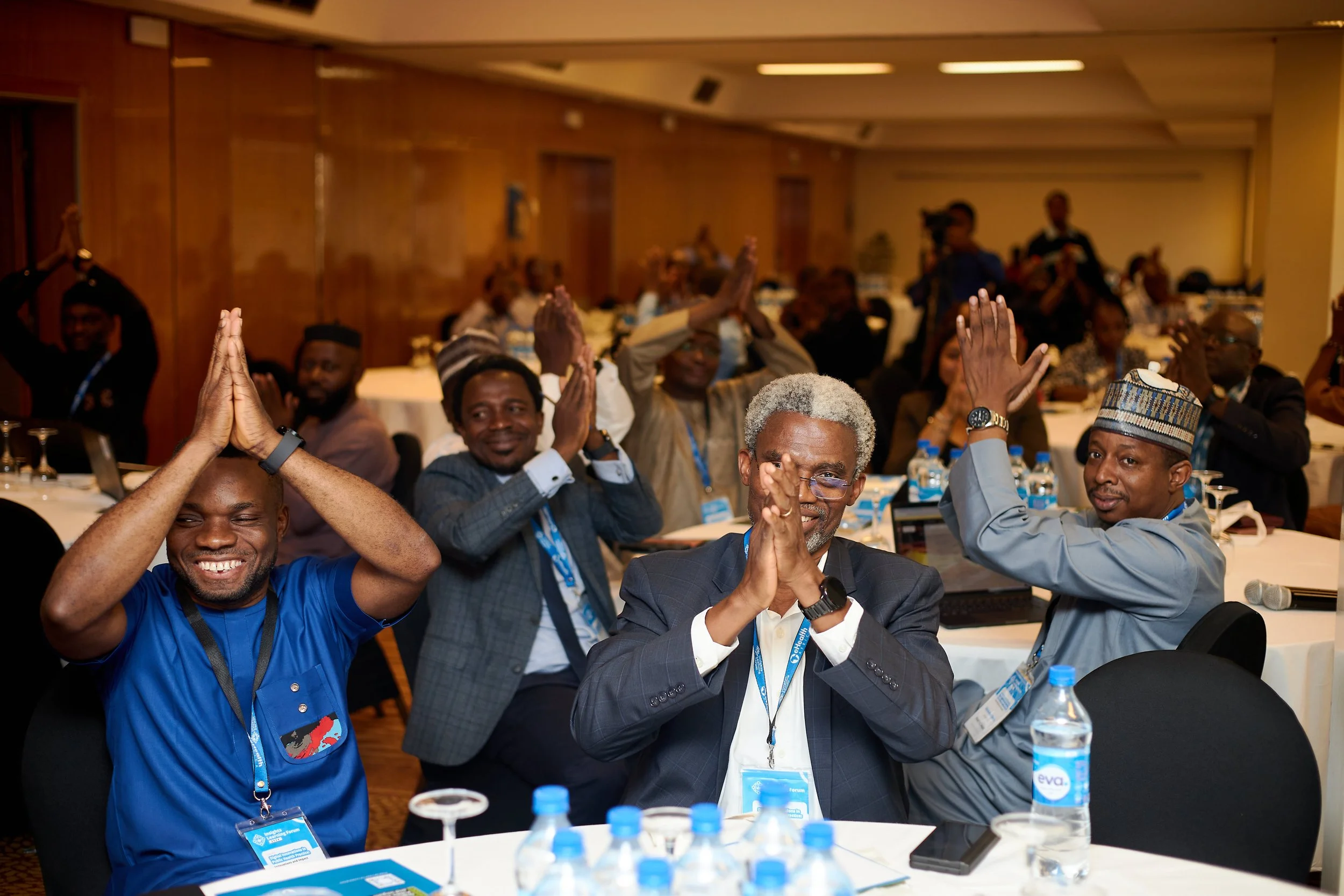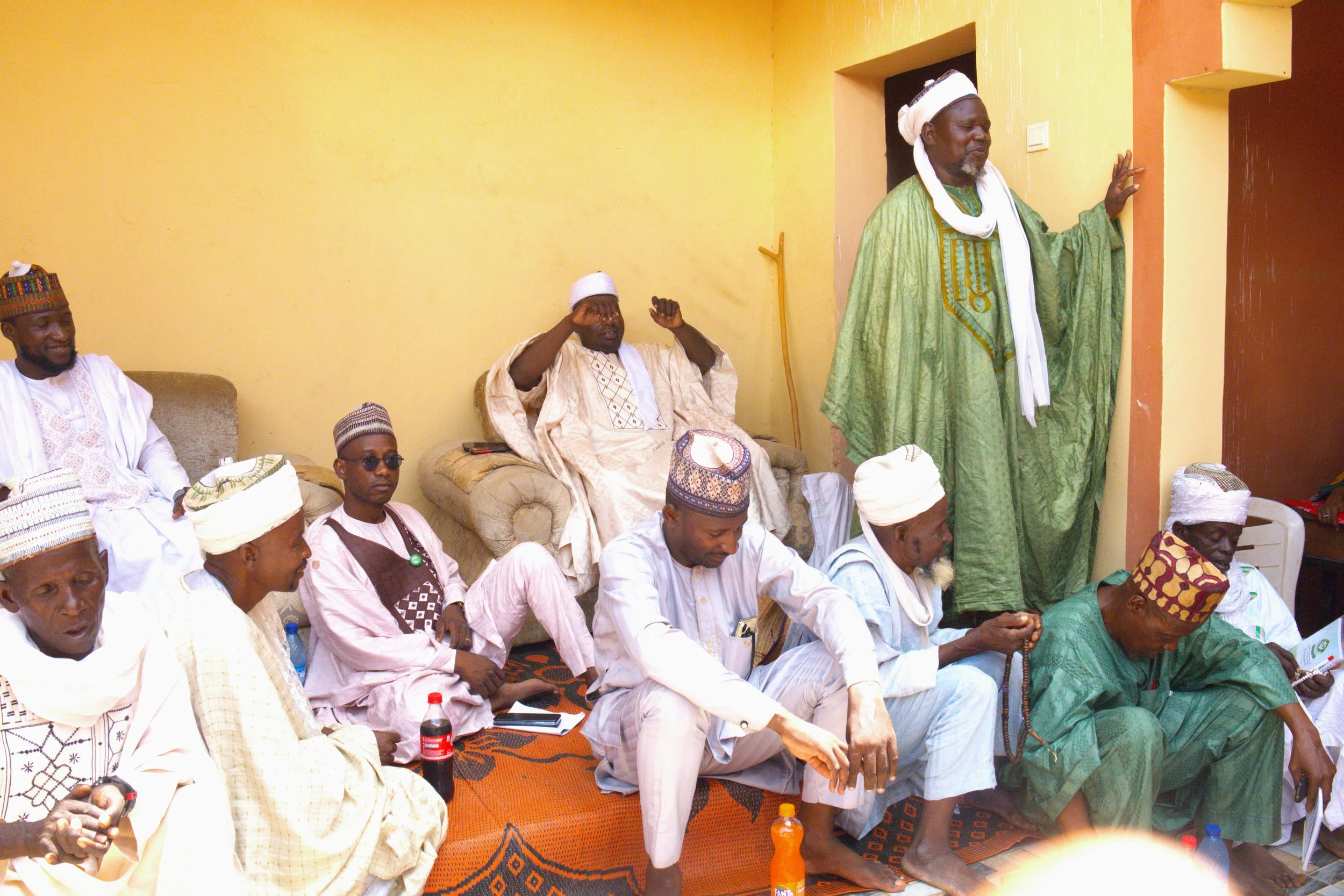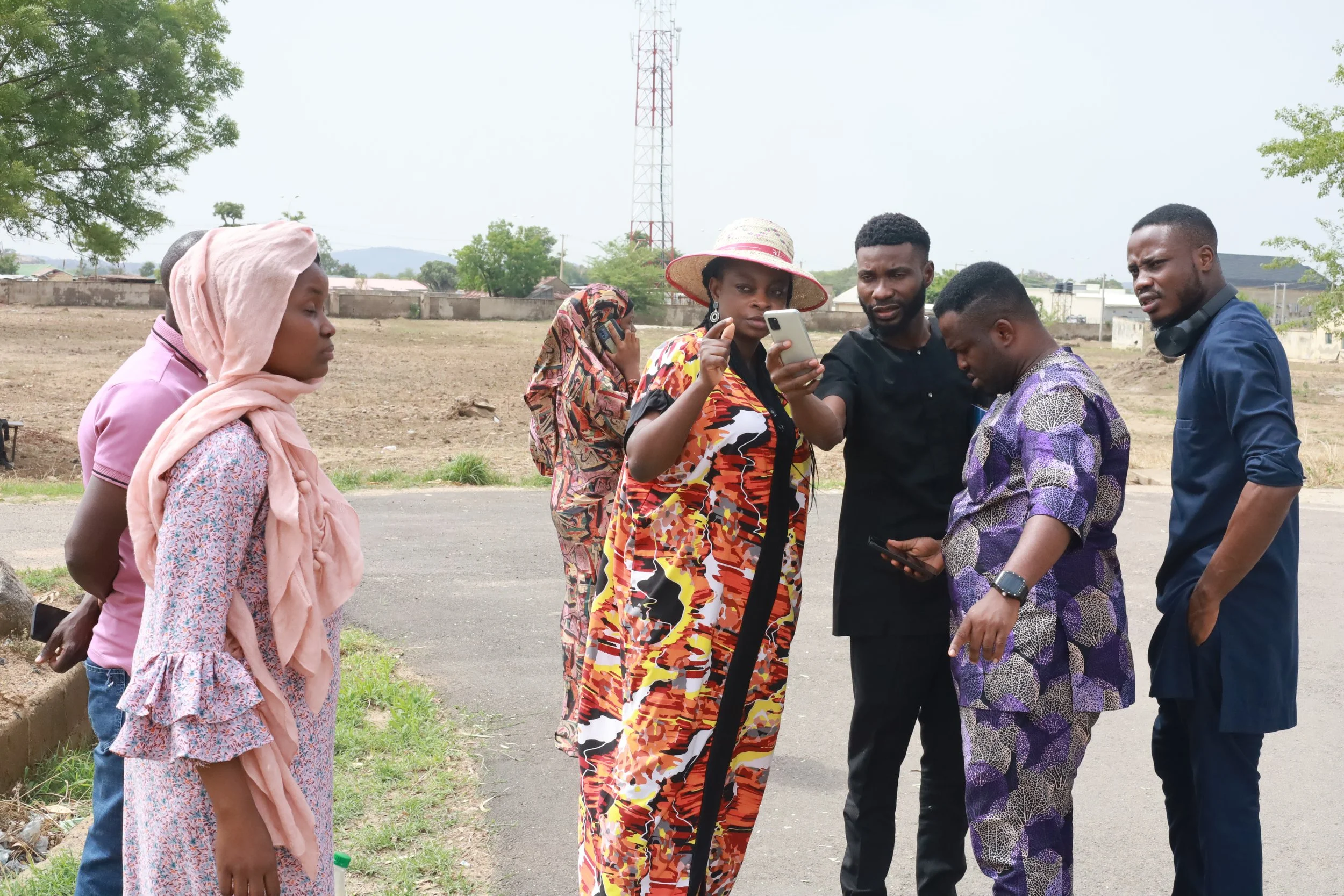Group photo of eHealth Africa's training team, the National Primary Health Care Development Agency (NPHCDA) training team, and Health Workers from Lapal Local Government Area following the EMID cascade training in NIger State.
In the heart of Lapai Local Government Area in Niger State, Nigeria, Saleh Umar Vulegbo stands as a beacon of hope and efficiency. Working as a data recorder at the Bow Comprehensive Primary Health Center, Saleh's dedication to his community is evident in every entry he makes and every record he keeps. His journey, intertwined with the Electronic Management of Immunization Data (EMID) by the National Primary Healthcare Development Agency (NPHCDA) and optimized by eHealth Africa with funding from the Global Alliance for Vaccines and Immunization (GAVI), is a testament to the power of technology and training in transforming lives and communities.
Saleh’s introduction to data recording and immunization came early in his career. “The first time I started hearing about data recording and immunization was when I began my work,” he recalls. “Without recording, it means you haven’t done anything because the record speaks on behalf of any assignment you did in your facility or local government.” This realization fueled his passion for data accuracy and reliability, ensuring that every immunization was documented meticulously.
The turning point in Saleh’s career came with the introduction of the EMID app. Before this innovation, data recording was a laborious task, relying on pen and paper. The transition to electronic data management was revolutionary. “The day I was introduced to the system, inputting and outputting data electronically, was memorable. Before then, everything was done with pen and paper. Now, things have turned to electronics,” he reflects.
The EMID app not only simplified data recording but also enhanced accuracy and traceability. “With EMID, you input biodata, scan a QR code, and take a personal picture to identify the person. It’s much more efficient than the old pen-and-paper method. It’s easier to identify and locate individuals now,” Saleh explains. This technological leap meant that immunization records were no longer confined to dusty registers but were accessible and verifiable in real time.
eHealth Africa’s role in this transformation cannot be overstated. After optimizing the EMID native app, eHealth Africa conducted comprehensive training, ensuring that health workers across Nigeria’s 36 states, 774 local government areas, and the Federal Capital Territory, Abuja, were proficient in using the EMID app. The training program equipped data recorders like Saleh with the skills needed to navigate the digital landscape. For Saleh, this training was more than just skill acquisition; it was empowerment. “The world is moving from hard copy to digital. Anything you do now is being watched globally. You must come out boldly and be transparent in your work,” he emphasizes.
Saleh’s mentor, an experienced Monitoring and Evaluation (M&E) officer, played a significant role in shaping his career. “He coached me since I was a child, teaching me the importance of monitoring and evaluation through proper reporting,” Saleh says. This mentorship, combined with eHealth Africa’s training, positioned Saleh as a crucial player in his community’s health system.
Saleh Umar Vulegbo, data recorder at the Bow Comprehensive Primary Health Center, Lapal LGA, Niger State.
Saleh’s impact extends beyond data recording. His dedication ensures that immunization programs run smoothly, with accurate data guiding every step. His work serves as a foundation for decision-making, policy formulation, and resource allocation. By maintaining precise records, Saleh helps safeguard his community against preventable diseases, contributing to a healthier future.
eHealth Africa’s optimized EMID app has revolutionized the way immunization data is managed, making the process seamless and efficient. Their commitment to training and empowering health workers like Saleh has had a ripple effect, enhancing healthcare delivery across Nigeria. Saleh’s story is a shining example of how technology, when coupled with proper training and dedication, can transform lives and communities.
In the words of Saleh, “In this global world, anything you do now is being watched. Inputting data into systems means everyone can see what you’re doing in real time, and it ensures accountability and accuracy.” His story is a reminder that behind every data point is a human story, a commitment to excellence, and a desire to make a difference.
Through Saleh’s eyes, we see the profound impact of eHealth Africa’s efforts both in optimizing the EMID app and in disseminating training to empower healthcare workers to use the app. Their work not only streamlines processes but also inspires individuals to rise above challenges, making meaningful contributions to their communities. As we celebrate these achievements, we are reminded that the heart of innovation lies in the people who bring it to life.













